Cold and flu season is once more upon us, bringing with it increased profits for manufacturers of pocket tissues and hand sanitizers. Of course, for most grown-ups the common cold is something that is a minor inconvenience that needs to be worked through (the exception being, of course, those with compromised immune systems and those who are suffering from man-flu). For younger children, however, who are still building up those immune systems, colds can be pretty unpleasant, leading to endless worry and concern for their carers.
1. Is It Something Serious?
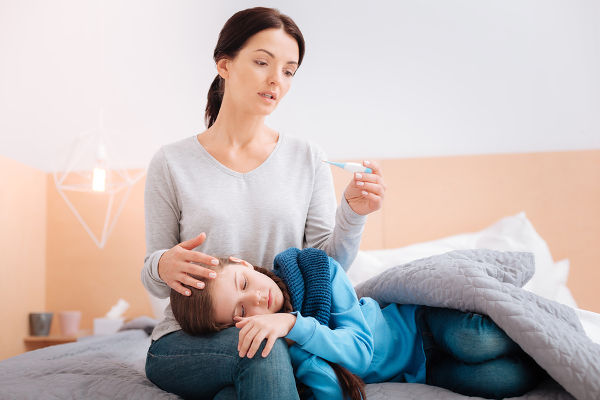
There are two words that terrify parents. Meningitis and Sepsis. Children with these conditions can deteriorate very quickly, but unfortunately, many of the symptoms are similar to other, less harmful viruses. As a result, many of us panic at the slightest sign of a raised temperature. It doesn’t help that viral rashes are common in young children, and yet it’s drilled into us (and quite rightly) that rashes are something to be concerned about.
If your child is ill, the chances are that it is something harmless, but always trust your instinct and do seek medical advice if necessary. The NHS website has useful guides on symptoms of Meningitis and Sepsis and it’s a good idea to familiarise yourself with these symptoms.
2. Do We Need The Doctor?
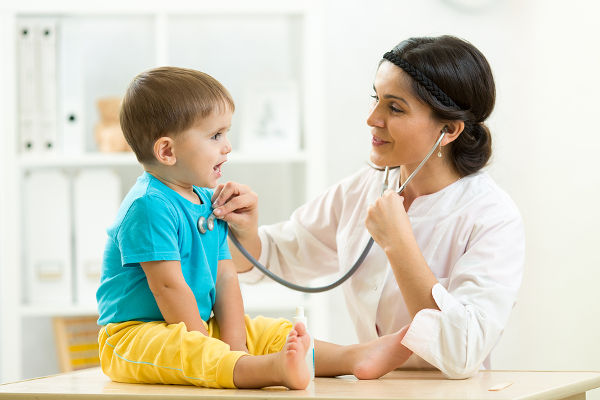
Thought number one naturally leads onto thought number two. Even once your initial panic is over and you have established that your child does not have a terrifying and life threatening condition, you are still left with the question as to whether or not you need to take them to see the doctor. We all know the NHS is under huge strain and GPs don’t really like to spend their time diagnosing patients with a common cold, but there is always the possibility that your child has brewed something that does need treatment, such as an ear or chest infection.
A general rule to follow is to see how they are after five days (unless there are any worrying symptoms that develop sooner that need to be checked out immediately). If there is still a fever after five days, then you should seek medical advice. On day five, you then spend 45-minutes on the phone at 8am to get an appointment and as soon as you arrive at the surgery all of your child’s symptoms miraculously disappear and you are faced with a GP who has consequently turned their attention to you, clearly concerned that you might be having some sort breakdown given that there is nothing wrong with your child.
3. Can I Go To Work?
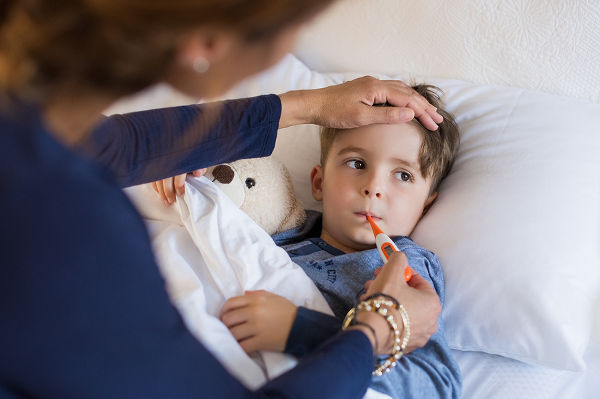
As adults, if we have a cold we are generally expected to suck it up and get on with work. For children, particularly young children, it’s not that easy. Young children find it harder to fight off viruses as their immune system is still developing and the symptoms can be more severe. If your child has vomiting or diarrhoea, then they need to stay at home for 48 hours to avoid spreading infection. But with colds it’s not so easy.
Most childcare providers will accept a child with a cold and no fever, but it’s still a tough call to make. If your child cries every time to put them down, then you probably need to take the day off, and just hope that your boss is understanding (again).
4. How Can Someone So Small Produce So Much Snot?
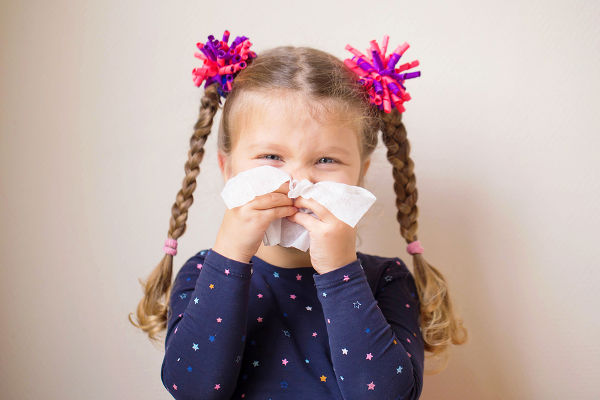
Children with colds don’t just get a little bit snotty. They ooze snot. It flows out of them like a endless tidal wave. You wipe and wipe and wipe and wipe and still the snot flows. There’s snot all over their faces, in their hair, on their clothes, on your clothes, on the sofa, on the carpet, on their sippy cup, even on your bed. There’s no escaping the snot, but at least you now know where the inspiration for Slimer in Ghostbusters came from.
5. What Exactly Do They Put In Infant Paracetamol?
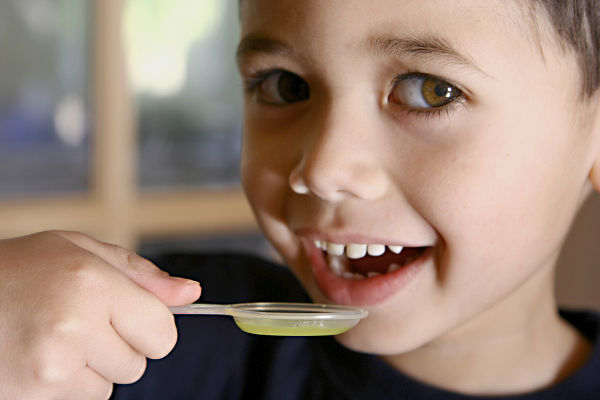
Adults before paracetamol: Ugh, my head hurts, my throat hurts, my nose is blocked. I’m not sure I can get through this day.
Adults after paracetamol: Ugh, my head is only marginally better, my throat still hurts, my nose is still blocked. I might be able to hold it together long enough to make it into the office.
Children before paracetamol: Mummy, I’m poorly, I hurt, I want to go to sleep. I want to lie on your lap and cry every time you move. I can’t eat or drink anything.
Children after paracetamol: Mummy, look, I can do a handstand! Mummy, what is the sky made of? Mummy, look at how fast I can run around the living room! Mummy, I’m hungry; I need all the food, Mummy! Mummy, can we go to the park! I’m going to spin round and round in circles really fast, Mummy! Mummy, LOOK AT MEEEEEEEEEEE!!!
Infant paracetamol: Crack for pre-schoolers.
6. Will I Ever Sleep Again?
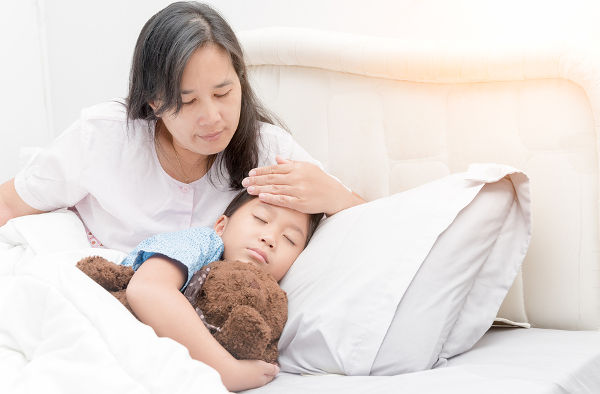
Sleep is our body’s way of repairing ourselves. At least it is for grown-ups. Children, clearly alien in their biology, operate entirely differently. When they have colds they sleep much less, preferring to spend the 2am to 5am time slot sat up in your bed staring at you and kicking the covers off you. You would think this would mean that they would therefore want to nap during the day to make up for the lack of sleep, but this is sadly not the case.
Instead, they just become irritable, irrational monsters who cry at the slightest thing, such as a toy train falling off a track or you giving them a drink after they clearly asked for a drink. You take a step back and make yourself another cup of coffee and pray that you will get more sleep tonight. You remind yourself that this was how tired you were during the newborn stage and vow never, ever, ever to have another child.
7. Will I Get Ill?
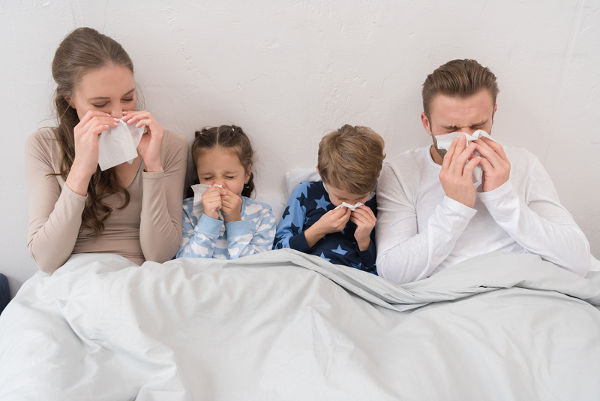
The problem with all that snot is that it is full of germs. So, now, not only do you have to worry about your child having a cold, and possibly taking time off work for that, but also the possibility of you getting ill, as well. With incubation periods typically being a few days, it’s guaranteed that as soon as your child is back to their normal, hyperactive selves, you will be feeling absolutely rotten. Unfortunately, however, as a grown-up, you can’t simply have a temper tantrum about it and refuse to eat anything other than ice cream.




